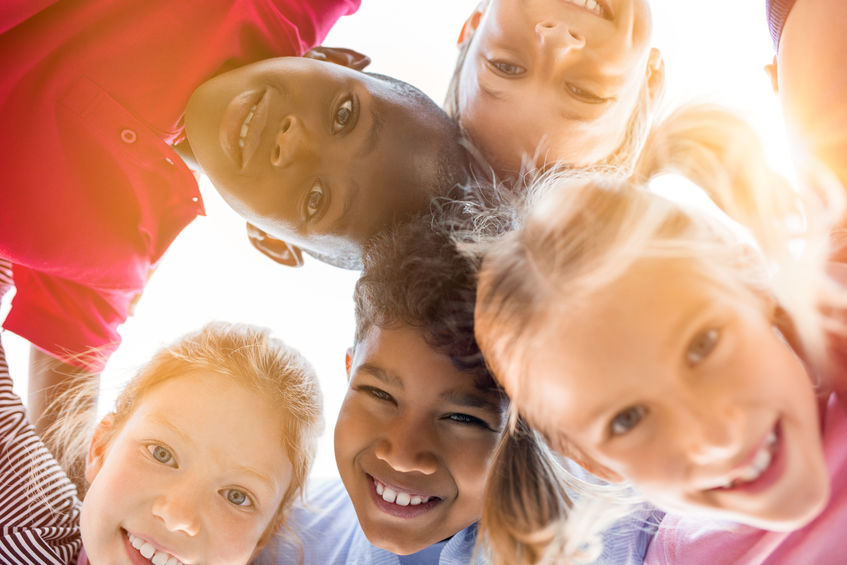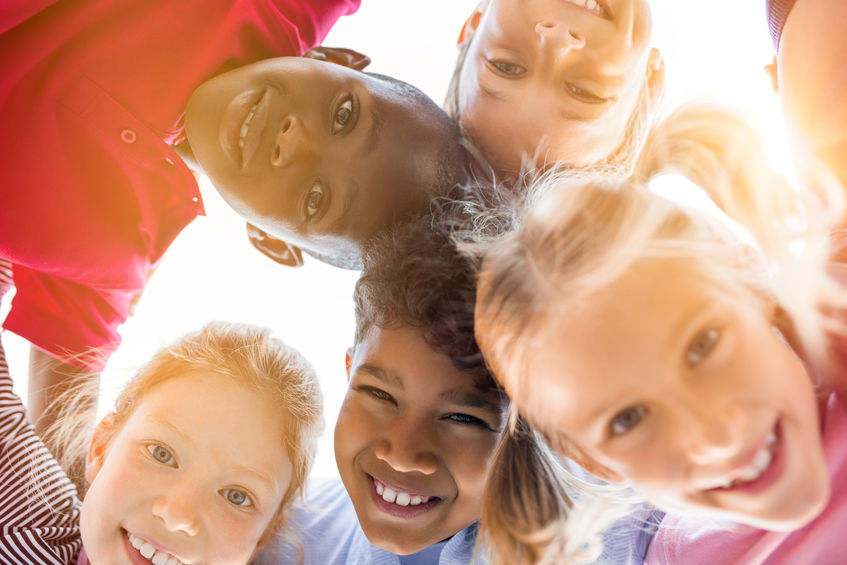Labels: Brown Eyes Vs. Blue Eyes
It's disconcerting how people are labeled as being a certain way only to fulfill their projected image. That is, they modify their behaviors to meet the positive or negative expectations of those important to them.
For example, there was an experiment that has been repeated in various forms for many years. labeled the "brown-eyed, blue-eyed" students.
Young students in a third-grade classroom were told by the teacher that blue-eyed students were intrinsically smarter and better than brown-eyed students.
Despite the preliminary testing that demonstrated both groups had equal intelligence, the blue-eyed students were more attentive and prepared and started to get better test scores. The brown-eyed students started getting lower grades because they stopped trying as hard feeling they were inferior to their blue-eyed classmates.
A short time later, the teacher indicated that she had made an error and actually the brown-eyed students were smarter than the blue-eyed kids. Almost immediately a reversal occurred in all aspects of measurement. The brown-eyed kids started performing better, while the blue-eyed kids started under performing.
This test, done in various forms, has proven that kids perform to meet expectations and personal beliefs. Numerous experiments have demonstrated how expectations, both of self or others, affects behaviors and beliefs, which further shapes results.
While occasionally someone does the opposite of what is expected. These "polarity responders who have a "Ill show you" response, they are the exception to the norm.
Labeling is something that happens in families and within all areas of society and industry.
For example, parents sometimes label kids as being smart, clumsy, shy, or messy, while others are labeled as being artistic, free thinkers or trouble makers.The problem isn't necessarily with the kids, it's the parents and other adult family members who reinforce this characterization of the child based on THEIR EXPECTATIONS of the kid.
Labeling can either be empowering or devastating to the development of a child. It's effects can sometimes affect future generations for decades as the recipient passes a similar label on to their kids and grand kids, or in an attempt to escape the label placed in them, will apply an opposite label to the child.
In summary, a lot of internal and external factors go into who we are, what we will or can do, and what we become. Being a parent is a touch job. However, when we realize the affect we can have on our children, we're better prepared to avoid mistakes.

For example, there was an experiment that has been repeated in various forms for many years. labeled the "brown-eyed, blue-eyed" students.
Young students in a third-grade classroom were told by the teacher that blue-eyed students were intrinsically smarter and better than brown-eyed students.
Despite the preliminary testing that demonstrated both groups had equal intelligence, the blue-eyed students were more attentive and prepared and started to get better test scores. The brown-eyed students started getting lower grades because they stopped trying as hard feeling they were inferior to their blue-eyed classmates.
A short time later, the teacher indicated that she had made an error and actually the brown-eyed students were smarter than the blue-eyed kids. Almost immediately a reversal occurred in all aspects of measurement. The brown-eyed kids started performing better, while the blue-eyed kids started under performing.
This test, done in various forms, has proven that kids perform to meet expectations and personal beliefs. Numerous experiments have demonstrated how expectations, both of self or others, affects behaviors and beliefs, which further shapes results.
While occasionally someone does the opposite of what is expected. These "polarity responders who have a "Ill show you" response, they are the exception to the norm.
Labeling is something that happens in families and within all areas of society and industry.
For example, parents sometimes label kids as being smart, clumsy, shy, or messy, while others are labeled as being artistic, free thinkers or trouble makers.The problem isn't necessarily with the kids, it's the parents and other adult family members who reinforce this characterization of the child based on THEIR EXPECTATIONS of the kid.
Labeling can either be empowering or devastating to the development of a child. It's effects can sometimes affect future generations for decades as the recipient passes a similar label on to their kids and grand kids, or in an attempt to escape the label placed in them, will apply an opposite label to the child.
In summary, a lot of internal and external factors go into who we are, what we will or can do, and what we become. Being a parent is a touch job. However, when we realize the affect we can have on our children, we're better prepared to avoid mistakes.


